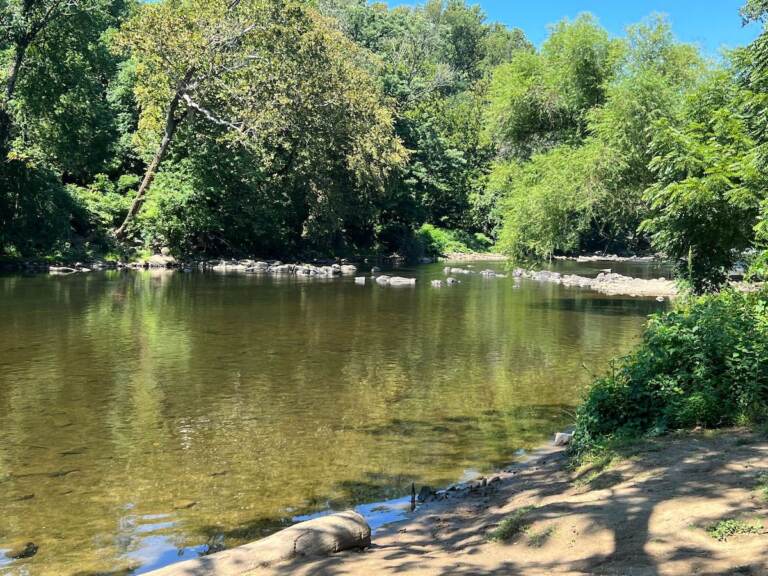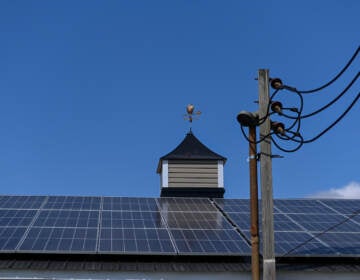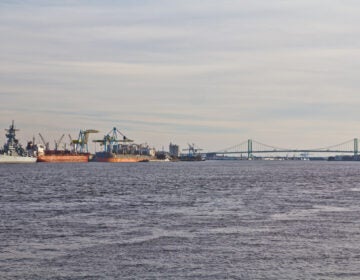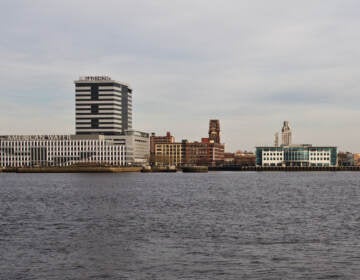U.S. Fish & Wildlife Service announce $17M for projects along Delaware River Watershed
This year’s Delaware Watershed Conservation grants are the biggest investment in the fund’s history.

More than $17 million dollars will support projects in the Delaware River watershed. (Zoë Read/WHYY)
From Philly and the Pa. suburbs to South Jersey and Delaware, what would you like WHYY News to cover? Let us know!
Federal funding from the Delaware Watershed Conservation Fund will go toward removing dams to help fish move freely, reducing stormwater pollution and restoring habitat for horseshoe crabs, among other initiatives.
More than $17 million in grants will support 45 conservation projects along the Delaware River in Pennsylvania, Delaware, New Jersey and New York, the U.S. Fish and Wildlife Service announced this week, in partnership with the National Fish and Wildlife Foundation.
This year marks the largest investment in the fund’s history, said U.S. Fish and Wildlife Service Director Martha Williams.
“Here are these communities that have been so long neglected, in some respects, brought to the table in conservation and saying what their needs are, and then showing the value of nature’s infrastructure and how this natural infrastructure can help with flooding, can help with water quality and access to the outdoors,” she said.
The Delaware River flows almost 330 miles, running from the Catskills in New York to the Delaware Bay. In addition to providing habitats for a number of species, it supplies drinking water for 15 million people.
The annual funding is awarded to projects in the watershed that help improve outdoor recreation, restore habitat, improve water quality and reduce the effects of climate change.
The grants include $1 million in funds to plant trees and rain gardens at Philadelphia elementary schools to prevent stormwater runoff, and another $1.5 million to restore habitat and construct a nature trail in the city’s FDR Park.
In New Jersey, $1.5 million will help restore the habitats of horseshoe crabs, which also aids endangered red knot birds that rely on the crabs’ eggs to survive. Another $500,000 will help fund monitoring efforts.
In Wilmington, $500,000 will be used to convert impervious surface into rain gardens to capture and infiltrate stormwater to improve water quality and reduce flooding at Rodney Reservoir Park.
The Bipartisan Infrastructure Law provided more than $4.7 million in funding, and another $347,450 was allocated from the USDA’s Natural Resources Conservation Service. The grants also will leverage more than $20 million in matching contributions from award recipients.
Williams said she believes the projects will improve quality of life by helping people connect with the outdoors, and by mitigating the effects of climate change.
“These grants can really help with flooding in certain neighborhoods, and can help with water quality,” she said. “And as we talked about trees and pollinator habitat, also having places where people want to be in hot, hot summer.”

Get daily updates from WHYY News!
WHYY is your source for fact-based, in-depth journalism and information. As a nonprofit organization, we rely on financial support from readers like you. Please give today.






